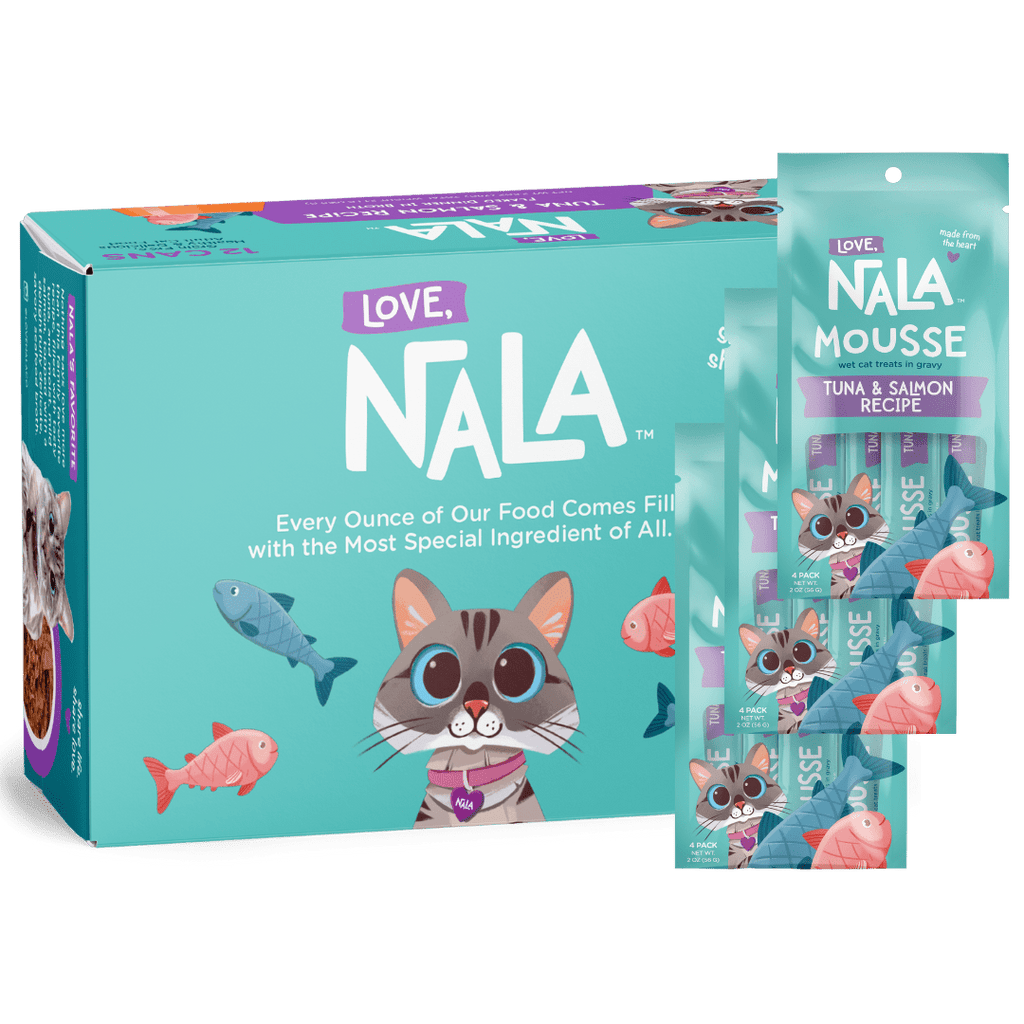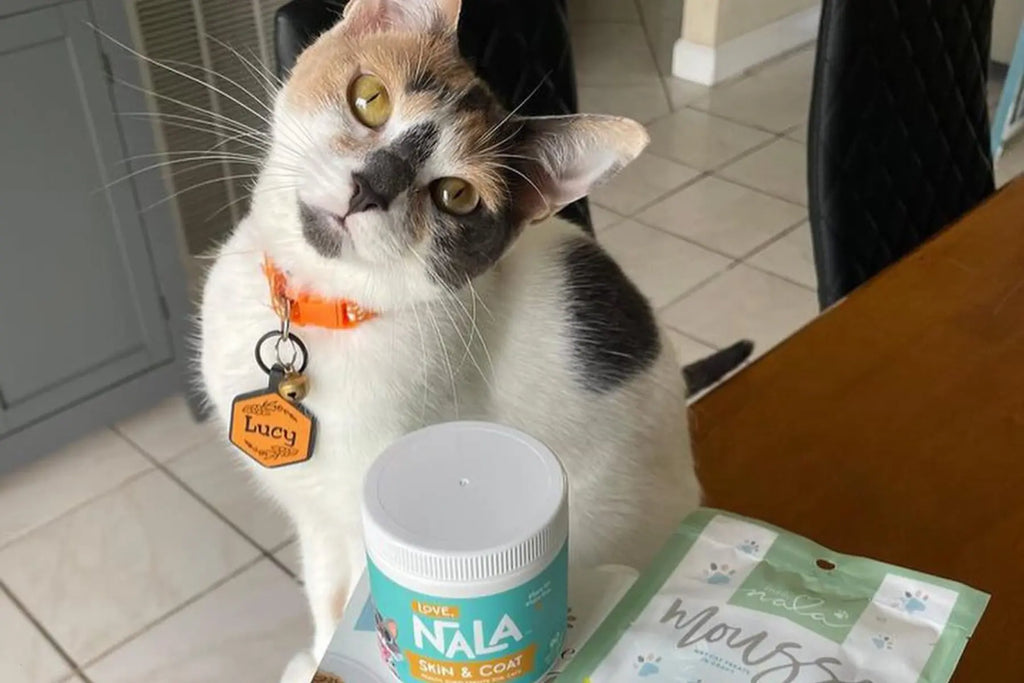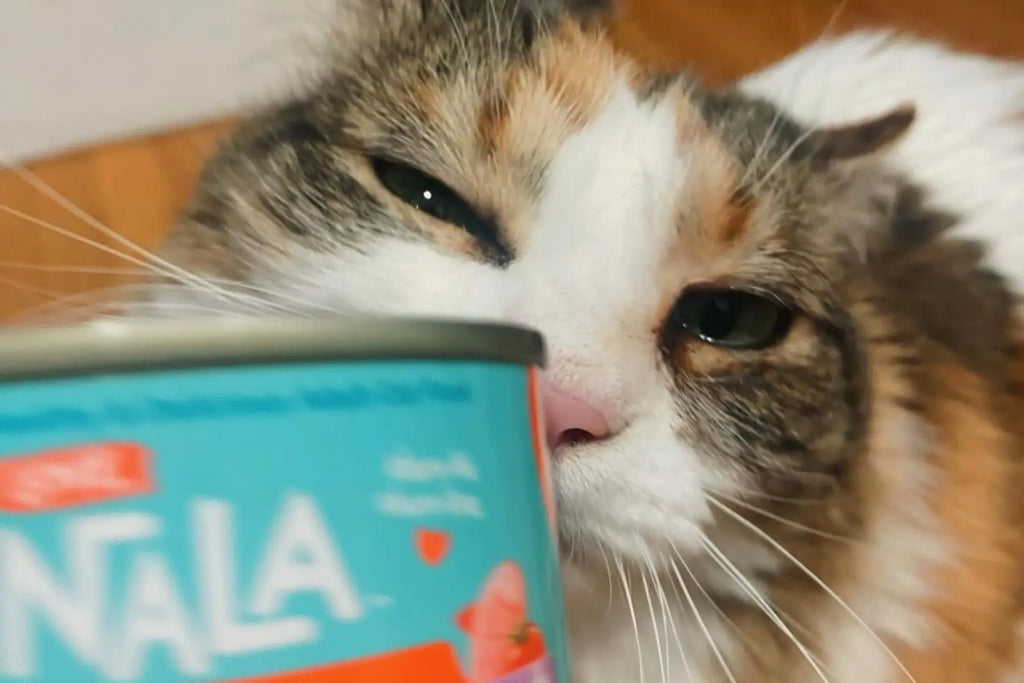Cats are beloved pets in many households, and their diet is a critical factor in their overall health and well-being. With so many options available on the market, it can be challenging to determine the best cat food to provide your furry friend with the nutrients they need. Salmon is an excellent ingredient to consider when selecting a healthy cat food. This article will provide a comprehensive overview of salmon for cats and why it's an excellent choice for a healthy diet.

Importance of Protein in a Cat's Diet
Salmon is not just any ordinary protein source; it's a powerhouse of amino acids that are essential for a cat's health. These amino acids are the building blocks of proteins, and unlike humans, cats are unable to synthesize some of these amino acids themselves, making it imperative that their diet provides them in adequate amounts. The protein from salmon is highly digestible for cats, meaning that it can be easily broken down and utilized by their bodies, thus supporting muscle maintenance and repair.
Vitamin B12
Vitamin B12, also known as cobalamin, plays an indispensable role in the health and well-being of cats, serving as a cornerstone for the proper functioning of nerve cells and the synthesis of red blood cells. It is crucial for maintaining the integrity of the nervous system, ensuring optimal nerve communication pathways, and facilitating the complex neurological functions that underpin your cat’s reflexes, movements, and sensory perceptions. This vitamin's deficiency can lead to significant neurological issues, including impaired reflexes, weakness, and in severe cases, convulsions. Additionally, Vitamin B12 is instrumental in the production and development of red blood cells. By aiding in the formation of these cells, it ensures the efficient transport of oxygen to various parts of the body, which is essential for sustaining energy levels and promoting overall vitality.
Vitamin D
Unlike humans, cats have a unique biological system that does not allow them to synthesize Vitamin D through sunlight exposure. For cats, the essential vitamin must be ingested through their diet. Vitamin D is paramount in the absorption and regulation of calcium and phosphorus, two minerals critical for maintaining healthy bones and teeth. This is especially crucial for kittens in their growth phase and senior cats, who are more prone to skeletal problems. A deficiency in Vitamin D can lead to serious health issues in cats, such as rickets in young ones and osteoporosis in older cats. Rickets results in soft and weak bones, while osteoporosis leads to porous, fragile bones. Ensuring your cat's diet includes adequate amounts of Vitamin D is vital for preventing these health issues and maintaining a robust skeletal structure.
Magnesium
Among its critical roles, magnesium is paramount in ensuring the health of the heart, facilitating proper muscle function, and regulating the metabolism of other nutrients within the body. This mineral aids in maintaining a normal heart rhythm, an essential aspect of cardiovascular health. It achieves this by influencing the electrical activity of the heart, ensuring that it beats regularly and efficiently. Additionally, magnesium's involvement in muscle function is of utmost importance; it is vital for the contraction and relaxation of muscles. This includes not only the skeletal muscles that contribute to movement and agility but also the cardiac muscle that constitutes the heart. For active cats, which require efficient muscle function for their daily activities, adequate magnesium intake is crucial.
Nutritional Benefits of Salmon for Cats
Health Benefits of Salmon for Cats
Incorporating salmon into your cat's diet can offer various health benefits that are crucial for their overall well-being. From supporting heart health to ensuring a shiny coat, the nutritional components found in salmon are key to maintaining a healthy and happy feline. Here is a detailed look at how salmon can be a beneficial part of your cat's nutrition:
- Supports Heart Health: Omega-3 fatty acids in salmon are renowned for their anti-inflammatory properties, playing a pivotal role in supporting feline heart health. These beneficial fats contribute to a healthy heart by enhancing blood circulation, lowering blood pressure, and diminishing the risk of blood clots. Regular consumption of omega-3-rich salmon can significantly lower the chances of heart disease, ensuring your cat maintains a strong and healthy heart throughout its life.
- Promotes Skin and Coat Health: The presence of omega-3 fatty acids in salmon does more than just support internal health; it also plays a critical role in maintaining the external beauty of cats. These healthy fats are vital for keeping the skin hydrated, thereby improving the fur's texture and adding a lustrous shine. Moreover, they aid in reducing skin irritations and inflammation, ensuring your cat's coat remains healthy, smooth, and vibrant.
- Supports Joint Health: For felines, especially older cats or those suffering from joint conditions, salmon's omega-3 fatty acids can be a game-changer. By reducing inflammation and enhancing joint mobility, these nutrients help alleviate discomfort and improve the quality of life for cats with mobility issues. This makes salmon an ideal dietary addition for supporting the joint health of your feline friend, ensuring they remain active and agile.
- Boosts Immune System: Salmon is not only about healthy fats; it's also packed with essential vitamins and minerals such as Vitamin B12, Vitamin D, and magnesium. These components play a crucial role in bolstering a cat's immune system. A robust immune system is key to fending off infections and diseases, ensuring your cat remains healthy and resilient against common health threats.
- Rich in Protein: As an excellent source of high-quality protein, salmon contributes significantly to the maintenance of muscle mass in cats. Protein is vital for a healthy immune response, supporting the body's ability to repair cells, make new ones, and ensure growth and development. Including salmon in your cat's diet ensures they get the necessary protein to support these vital functions.
- Source of Vitamins and Minerals: Beyond its omega-3 and protein content, salmon is a treasure trove of vitamins and minerals essential for a cat's health. Vitamins B12 and D, along with magnesium, support heart health, strong bones, and the health of nerve cells and red blood cells. These nutrients ensure your cat enjoys a balanced diet that supports their overall well-being, from the heart to the fur.
Salmon serves as a powerhouse of nutrition that can significantly enhance the health and happiness of your cat. From supporting vital organ functions to ensuring a beautiful coat, the benefits of including salmon in your cat's diet are both vast and varied. It's a simple yet effective way to keep your furry friend in optimal health.

Tips for Reading Labels and Ingredients when choosing Salmon for Your Cat
With the vast array of pet foods on the market, selecting the most nutritious and beneficial option can be daunting. Here’s a detailed guide to help you make the best choice for your feline friend:
- Look for Salmon as the Main Ingredient: Ensuring that salmon is listed as the primary ingredient in a cat food product is crucial. This guarantees your cat is receiving a rich source of high-quality protein, essential for muscle maintenance and overall health. Products with salmon as the main ingredient are typically less processed and contain more of the natural nutrients found in salmon, providing optimal benefits to your cat's diet.
- Avoid Added Ingredients: Many cat food products include unnecessary added ingredients, such as salts or preservatives, which can detract from the health benefits of salmon. To ensure your cat gets the most nutritional value, opt for products that contain only salmon and natural preservatives, such as water or oil. This approach minimizes the risk of introducing potentially harmful substances to your cat's diet.
- Check for Other Ingredients: While salmon should be the main focus, the inclusion of additional beneficial ingredients, such as vitamins and minerals, can significantly enhance the nutritional value of the product. Look for foods that incorporate these elements to support a well-rounded diet. Ingredients like taurine, essential fatty acids, and various vitamins can contribute to better eye health, improved digestion, and a stronger immune system.
- Read the Label Carefully: Deciphering the label on cat food is crucial for ensuring your feline friend receives a balanced and nutritious diet. It's important to scrutinize the list of ingredients, nutritional content and recommended serving sizes detailed on the packaging. This information is vital in assessing whether your cat is consuming the right quantities and types of nutrients needed. Additionally, labels offer a glimpse into the quality of the food, indicating the presence of high-grade proteins or the absence of undesirable fillers. By understanding these details, you can make informed decisions that align with your cat's specific dietary requirements.
- Consider the Source: The source of salmon plays a significant role in determining its nutritional value and safety for consumption, with wild-caught salmon often hailed for its superior quality. This preference is attributed to wild salmon's natural diet and the pristine environments in which they thrive, factors that contribute to a more robust nutritional profile. Opting for salmon that is harvested in a manner that respects and preserves natural fish populations and habitats ensures environmental responsibility. It also helps in the global fight against overfishing, thereby supporting the longevity of salmon stocks and the health of marine ecosystems. This mindful approach to selection not only benefits your cat's health by providing them with high-quality, nutrient-rich salmon but also aligns with broader environmental conservation efforts.
- Consult with a Veterinarian: Before making any changes to your cat's diet, it's essential to consult a veterinarian, as they possess the expertise to evaluate your cat's health profile, considering factors like age, weight, and existing health conditions. This professional advice is invaluable in selecting a salmon product that is not only safe but also optimally beneficial for your cat. Veterinarians can recommend specific products that align with your cat's dietary requirements and health goals, ensuring that any dietary adjustments contribute positively to their overall well-being and nutritional balance. This precautionary step helps avoid potential adverse reactions and ensures that your cat receives the most appropriate and healthful diet possible.
Selecting the right salmon product for your cat involves careful consideration of the ingredients, sourcing, and nutritional content. By following these guidelines, you can enhance your cat's health and well-being through their diet. Always remember, that a well-chosen diet is the foundation of pet health.

Incorporating salmon into your cat's diet can provide numerous health benefits, including supporting heart health, promoting skin and coat health, supporting joint health, and boosting the immune system. When choosing salmon for your cat, consider the type of salmon, the source, and the ingredients Ensure to look for healthy cat food brands that use human-grade, wild-caught salmon as the main ingredient. Always consult with a veterinarian before making any dietary changes for your cat. Salmon is a nutritious and delicious ingredient that can help keep your cat healthy.




















